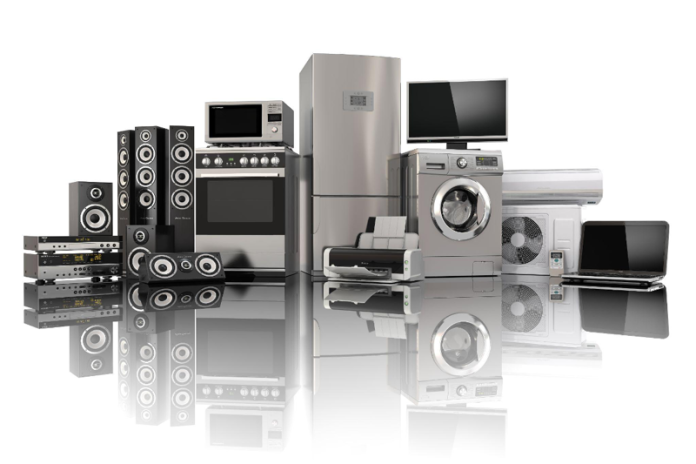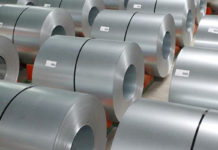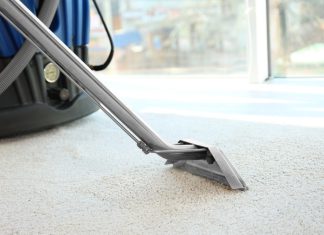Large households are faced with the challenging task of managing increased energy consumption due to the higher use of appliances. Every washing machine cycle, every refrigerator buzz, and every spin of the dishwasher adds to the home’s overall energy use. Multiply these with the number of family members, and you’ve got yourself a considerable energy bill at the end of each month. But is there a way to curb this?
Absolutely! With some careful planning, mindful selection, and regular maintenance, it’s possible to significantly reduce your home’s energy use without sacrificing comfort or convenience. This guide aims to illuminate the path towards energy efficiency for large households. It’s all about understanding your home’s energy needs, choosing the right appliances, and maintaining them effectively to ensure sustainable energy savings.
Let’s delve into how you can create a greener, more energy-efficient home for your large family.
The Impact of Appliances on Household Energy Consumption
In large Australian households, it’s quite common to have a plethora of home appliances facilitating day-to-day tasks. From the refrigerator humming quietly in the kitchen, to the washing machine working hard in the laundry room, these conveniences are an integral part of our lives. But each of these conveniences comes at a cost, and not just the upfront purchase price. They contribute significantly to our monthly energy bills and, in a larger household, this can quickly add up.
A key question to ponder is how much energy does your home actually consume? Some might be surprised to know that the refrigerator, an appliance that’s always on, consumes a large chunk of electricity. Studies have shown that older models, especially those that aren’t energy efficient, can use nearly twice as much energy as newer models. Furthermore, this energy consumption has more than just a financial impact. It also contributes to your household’s overall carbon footprint, playing a role in larger environmental issues like climate change.
Energy Efficiency Ratings: A Key to Savings
Navigating through the ocean of available home appliances can be daunting. Every brand touts its benefits, and each model boasts unique features. Yet, amid this marketing melee, there’s one unbiased metric that can guide consumers towards the most economical choices: the energy efficiency rating. This rating, derived from standardised testing methods, allows you to compare energy consumption across different appliances—serving as a litmus test for long-term savings.
The ratings are usually depicted as a series of stars on an energy label. The more stars an appliance has, the more energy-efficient it is. But why should this matter to you? Well, consider this: an appliance that uses less energy will lower your energy bills in the long run. This could add up to substantial savings over the appliance’s lifetime. Hence, understanding and using these ratings can be crucial in shopping for energy-efficient appliances, as it empowers you to make an informed decision and optimise value for your money.
Choosing Energy-Efficient Appliances: Factors to Consider
Selecting home appliances goes beyond aesthetics or fitting them into the available space. It’s about understanding how each choice aligns with your lifestyle, the needs of your family, and your goals for sustainable living. Key factors to consider include an appliance’s energy consumption, how often you’ll use it, and how its energy usage fits into your home’s overall energy footprint.
Take washing machines as an example. You might be used to top-loading models, or find them more convenient for your needs. However, front-loading washing machines are generally more energy and water-efficient. This difference can lead to substantial energy savings over the appliance’s lifetime. Therefore, when choosing appliances, it’s essential to consider the price, energy ratings, suitability for large households, and long-term environmental implications.
Top Energy-Efficient Appliances for Large Households
Choosing the right appliances can make a significant difference in the energy consumption of a large household. Many energy-efficient options are available in the market that not only provide excellent performance but also help save on utility bills. Let’s consider some top picks for common household appliances.
Refrigerators are essential in any home, but their constant operation can lead to substantial energy use. Models with an energy star rating are designed to use less electricity, with some offering up to 20% more efficiency than non-rated models.
Similarly, when it comes to washing machines, front-loading models are typically more energy-efficient than top loaders. They use less water and electricity per load, translating to considerable savings over time. The upshot? Your choice of appliances can help you reduce your energy bills and contribute to environmental sustainability.
Maximising Energy Efficiency Through Maintenance
While choosing energy-efficient appliances is a great start, maintaining these appliances in good working order is equally essential. Regular servicing and maintenance can help maximise the lifespan and efficiency of your appliances, preventing minor issues from becoming major problems.
Consider your hot water system, for example. Regular maintenance, such as checking the temperature setting, draining the tank to remove sediment, and inspecting for leaks, can keep it running at its best. In addition, regular maintenance can ensure the system’s energy consumption remains at an optimum level, thereby maximising energy efficiency.
Conclusion
Managing energy consumption in large households is a challenging yet achievable goal. With the right knowledge and informed decision-making, homeowners can reduce their carbon footprint without compromising on comfort.
Choosing energy-efficient appliances, understanding their energy labels, and maintaining them regularly can lead to significant savings on your energy bills and reduce your home’s overall energy consumption.
Always remember, the price of an appliance is not just what you pay at the checkout, but also includes the cost of running it over its lifetime. By following this guide, you can make wise choices that benefit your household economically and contribute positively to the environment. Make a change today for a more sustainable tomorrow.
For expert advice and assistance, speak to a hot water specialist about your options. Regular maintenance not only ensures optimal performance but also extends the lifespan of your appliances, giving you the best return on your investment.















